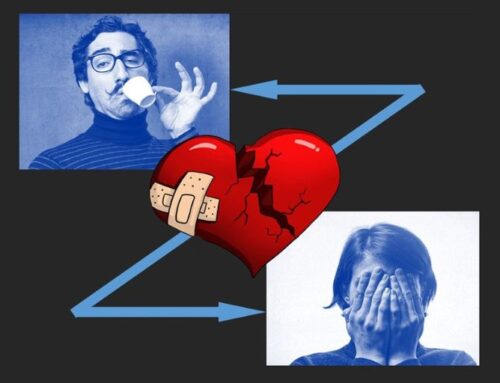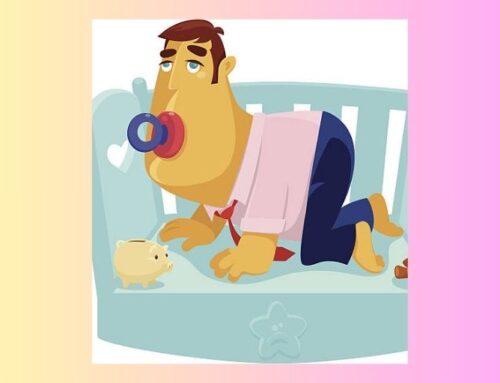“How people treat you is their karma. How you react is yours.” Wayne Dyer
One way to prevent, or at least minimize conflict in relationships, I’ve discovered, is not to react emotionally to what other people say or do.
Specifically, I’ve found it useful not to take everything so personally. I’ve also come to understand that I don’t have to win every point in a disagreement.
For example, when someone else is not particularly polite or kind or understanding, I don’t need to get even with them. I don’t have to get down and dirty with them. I can instead pause, then choose my response or non-response (planned ignoring is sometimes the best course of action).
The response I choose, of course, needs to be closely aligned with my values. In other words, I need to remember who I am, or more properly, the person I aim to be – someone of honor, dignity and compassion. I mean that person I am when I’m being my best self.
On top of all that, I don’t wish to add to the supply of bad karma in world. There’s enough of that already without me adding the extra dollop.
Thus, my goal is always to take the high road in my relations with others.
Two Stories
Jim Scrapes Bottom
“Whoever is trying to bring you down is already below you.” Anonymous
Last year Jim’s relationship of 12 years ended. Post breakup, his partner and their two children moved to a different, but nearby, residence. Jim is angry and bitter and blames his partner for all their woes. While his partner wants to end things peacefully and work on a cooperative co-parenting plan, Jim is determined to fight for custody and to make his former partner’s life as difficult and ugly as possible. What he doesn’t see is the effect that his attitude and behavior is having on their children.
Helen Rises Above It
“Respond intelligently even to unintelligent treatment.” Lao Tzu
Helen’s workplace is generally speaking a peaceful and productive environment. However, recently, a new worker, Lisa, has brought a modicum of negativity into the scene. Lisa seems to particularly focus her negativity on Helen by speaking unkindly and even critically about her to others. Helen has been told about what Lisa is doing, but she chooses to ignore the Lisa’s poor behavior. Instead Helen elects to act in a courteous and professional manner in all of her dealings with Lisa.
Unpacking Jim’s and Helen’s Stories
“Conflict cannot survive when only one person participates.” Anonymous
Jim’s approach to his situation is an emotionally reactive one. His focus is solely on his own experience — his pain and disappointment. He is not, at least at this stage, taking account of the bigger picture. His main goal is to make his ex-partner suffer in the expectation that this will somehow relieve his own suffering. However, his anger and desire for revenge will not bring him peace or relief in the long term as he will learn in time. Most especially, his reactions and actions are highly destructive as his anger and bitterness will have long-term consequences for his offspring. His pain will transfer to them, be absorbed by them and shape their relationship with him, others and life for years and even decades to follow. Pain will be piled on pain and become embedded in their family story.
Helen takes a more adult approach to conflict. Naturally, it is not pleasant to have someone actively trying to undermine you. But Helen chooses to consider the bigger picture. While she does not actively accept disrespect, she has concluded that a reactive response on her part – behaving in kind toward Lisa – will only make matters worse. It will invite her co-workers to choose sides, thus creating a potential battleground in their workplace. She also is aware that behaving poorly will be damaging to her own self-esteem and a gross violation of her principles. Helen will not grovel nor scrape bottom. She knows she is worth more than that. Of course, at a strategic level, taking the high road is a wise course of action. By choosing the high road, Helen will likely take the wind out of Lisa’s sails as Lisa will have nothing to push up against. And of course, Helen’s honorable behavior is proof positive that Lisa’s judgement about her is false.
In the words of Chris Hedges, journalist and thinker, who has seen it all having worked for more than two decades in war zones, “The good draws to it the good.” If that indeed is true, what then does “the bad” draw to it?
“The best revenge is to be unlike him who performed the injury.” Marcus Aurelius







